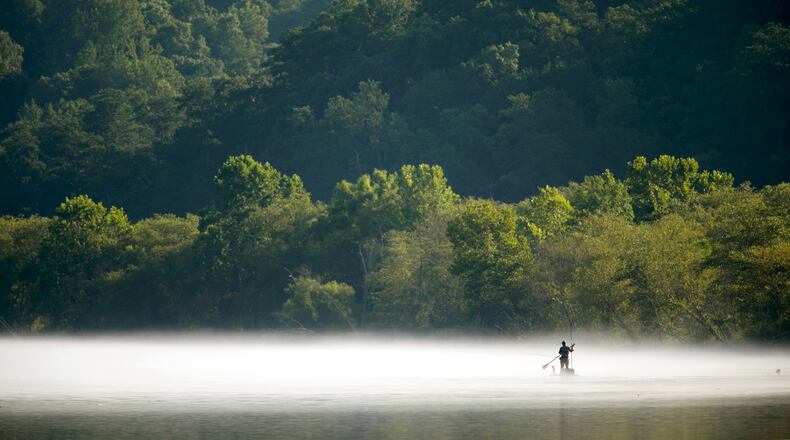Earth Day is a good time to take stock of how Mother Nature fared over the past year in Georgia. The state, it seems, has a love-hate relationship with its mom.
Here are four ways Earth changed — or didn’t — in Georgia.
Water
The Chattahoochee River remains under siege. A national environmental group says the river basin is the nation's most endangered. And state efforts to keep more water in Atlanta anger downstream users.
The never-ending water war with Florida and Alabama rolls along. Negotiations between Georgia and Florida over an "equitable apportionment" of the Chattahoochee, Flint and Apalachicola rivers continue with no end in sight. A special master appointed by the U.S. Supreme Court threatens a resolution to nobody's liking.
Climate
This was the year Georgia, or at least some government officials and coastal communities, took climate change seriously.
Tybee Island went a step further by accepting the reality of climate change and taking action to combat it, sea level rise in particular. Rising seas are already pounding Georgia's barrier islands and threatening a lighthouse.
The coast
The Atlantic Ocean isn't the 100-mile-long coast's only threat. Developers continue to eye beaches and marshes for homes, spaceports, barge ports and other projects. Eight super-expensive homes are likely to be built along a "spit" of Sea Island land.
All was not build, build, build, though. The state, the feds and environmental groups bought a former rice plantation along the Altamaha River and opened it to the public.
On land
Landowners and environmentalists notched some significant victories against pipelines. A pipeline builder canceled a project through eastern Georgia in the face of legal, political and property owner opposition. Another pipeline, in southwest Georgia, is jeopardized by fervent opposition and an inability to get a state permit.
The disposal of toxic coal ash continues to rile a South Georgia community home to a landfill that takes out-of-state waste. Georgia's national parks, though, offer a much-needed respite from the state's environmental challenges and are on track to expand in size and reputation.
About the Author
Keep Reading
The Latest
Featured

